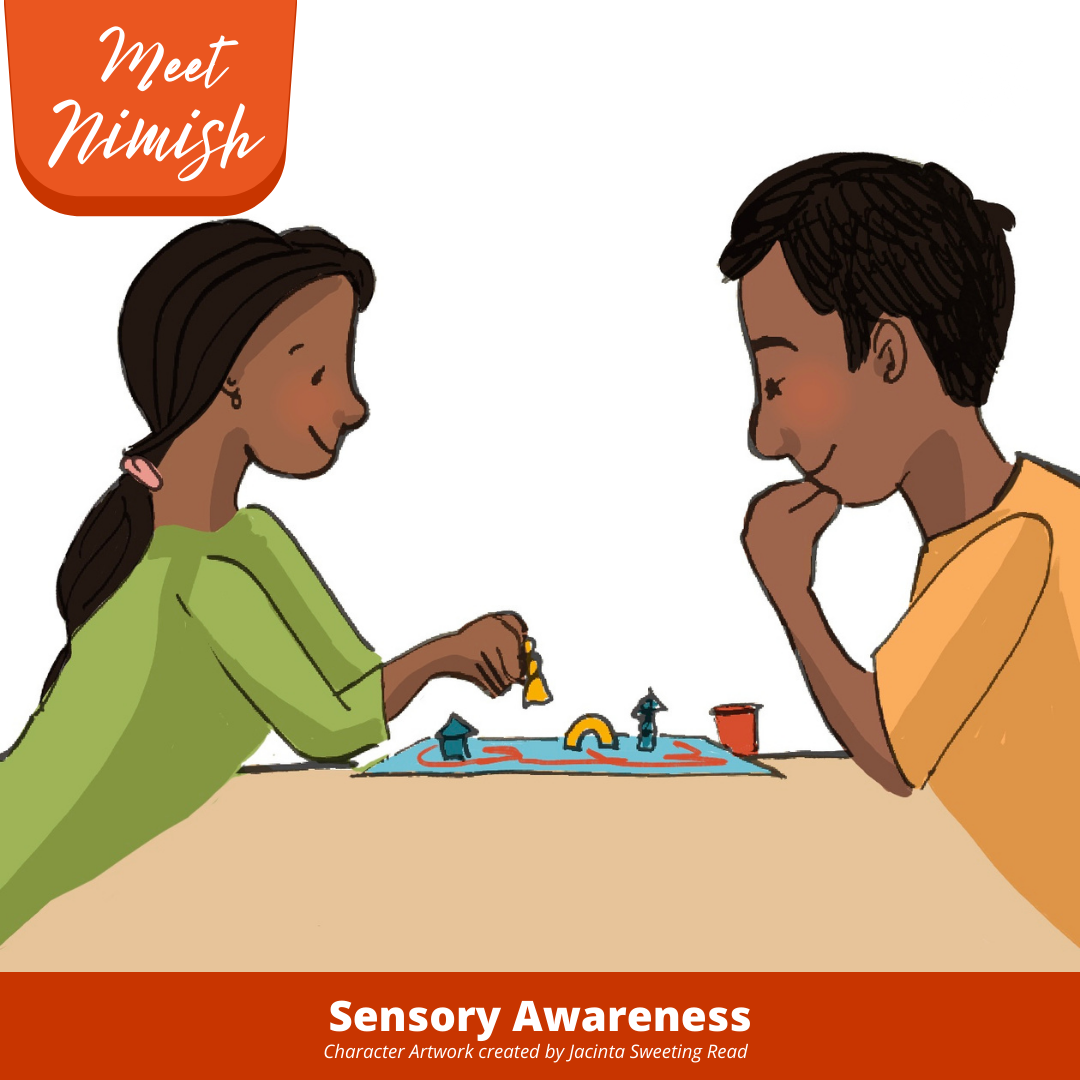

 Meet Nimish. He’s 31, works as a dental hygienist, and has been married to Jalti for three years. Nimish has a long-standing diagnosis of attention deficit disorder (ADD). Nimish loves his job because it’s got just the right amount of novelty. He doesn’t sit or stand in the same place for too long, and interacting with the patients helps him to stay engaged and productive throughout the work day. The noise and busy atmosphere at work give Nimish a buzz, and he really enjoys hearing all about the patients’ different lives.
Meet Nimish. He’s 31, works as a dental hygienist, and has been married to Jalti for three years. Nimish has a long-standing diagnosis of attention deficit disorder (ADD). Nimish loves his job because it’s got just the right amount of novelty. He doesn’t sit or stand in the same place for too long, and interacting with the patients helps him to stay engaged and productive throughout the work day. The noise and busy atmosphere at work give Nimish a buzz, and he really enjoys hearing all about the patients’ different lives.
Nimish and Jalti met at college. They started dating after knowing each other for two years. They both enjoy art galleries, theatre, and romantic comedies. The two years they dated and the first two years of their marriage were wonderful. Since then there has been a steady decline. They haven’t been able to get on the same page with communication, and Jalti is struggling to handle Nimish’s emotional mood swings.
Nimish is also a video game fanatic. He has the full set-up and has a close group of gaming friends. Sometimes Jalti plays with them, but she mostly reads historical novels or hangs out with her book club friends.
Nowadays when Nimish gets home from work he just wants to relax and unplug. When he was first married to Jalti, things were new and exhilarating. He enjoyed coming home and hanging out with her, cooking dinner together, and even playing board games. These things are still fun, but Nimish saves all his energy for when friends are coming over. If it’s just Nimish and Jalti, then he feels like he can relax, unwind and zone out.

At the end of a long day, Nimish grabs his dinner plate and sets up in front of the computer. He loves ordering take-out that he knows Jalti loves, too. He always makes sure they have their favorite specialty drinks on hand. Nimish takes his shoes off at the door, takes his socks off in the kitchen, and often leaves his glasses, mugs, plates, and cutlery wherever he was sitting to eat or play. Nimish has enough scrubs for work that he can wear a new set every day of the week. He does his laundry on Sundays, usually quite late at night and in a hurry.
Nimish and Jalti have been arguing for the last few months. Jalti wants things to be like they were before, but Nimish knows that that newness and excitement won't happen again. Honestly, he’s relieved. It was wonderful but exhausting as well, and now he wants comfort and familiarity with Jalti so that he can explore the world with her, from their safe family base.
Their sex life has followed a similar pattern. At first, every day was like their honeymoon—exhilarating, rich, and new. Now sex is just not the same. Nimish is under-responsive to touch, and intimacy now is more like a routine act of self-care than a vibrant act of connection.
Nimish’s challenges with organization, his under-responsivity to Jalti’s physical expressions of closeness, and his habits of self-isolating, disconnecting, and zoning out in the evenings are taking a serious toll on his marriage. Whenever Jalti tries to talk to him about it he completely loses his cool, cries, slams furniture and doors, even throws things. He has locked himself into the bathroom sobbing, threatened to leave, begged for forgiveness. Nothing is working.

Nimish and Jalti find a Marriage and Family Therapist with advanced training in sensory processing who helps them understand the problematic relational dance that is hurting them both. Together they learn how to begin to change their steps. They begin to practice new ways of relating that allow them both to feel heard, seen and understood by the other. Nimish’s differences in sensory integration, motor planning and executive function become parts of life that they are able to accept and support one another around. They begin to experience a felt sense of connection and safety that they had been longing for in their marriage.
They discover that as well as board games, they both really enjoy puzzle video games and role-playing video games like Fable and Star Ocean. Sometimes just being in the same room is enough. They spend time together and have committed to marriage counseling once per month going forward. Their physical intimacy is better than ever.
Sensory Health Transforms Lives
Every month at STAR Institute is sensory awareness month, and October is particularly special as we share our passion with the world.
Last year we shared the stories of seven characters who became very dear to our hearts -- each character represented a different aspect of how differences in sensory integration and processing impact health and wellness.
This year we are leveling up our media presentations and adding three more sensory stories.
The characters are from different stages of life, contexts, and family backgrounds, with one thing in common -- discovering how the power of sensory processing has transformed their lives for the better. These stories are based on real-life, real testimonies, real people.
Help us do more. This year we are raising funds to publish our sensory stories and distribute them in schools, hospitals, and doctors' offices around Colorado, the USA and the world. Would you donate a copy? Your gift will be put to work immediately. Thank you for joining STAR in making sensory-informed education and healthcare a reality in 2022.
